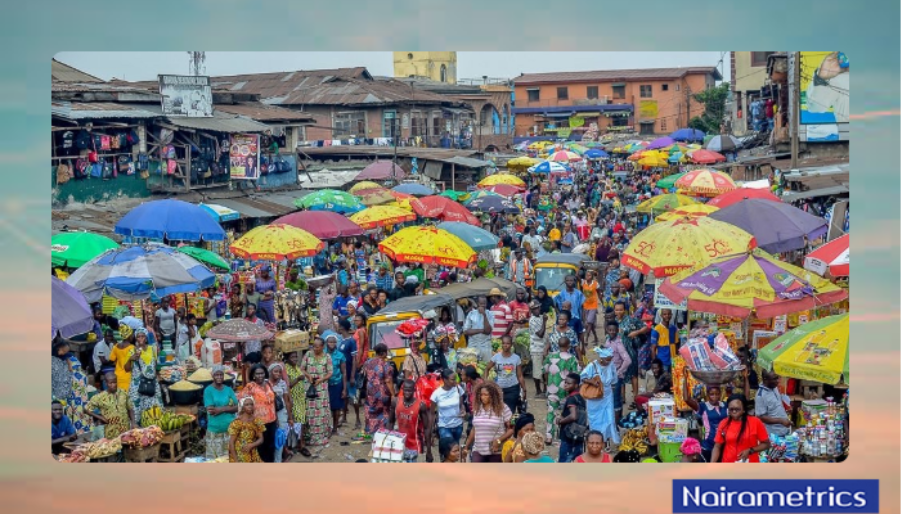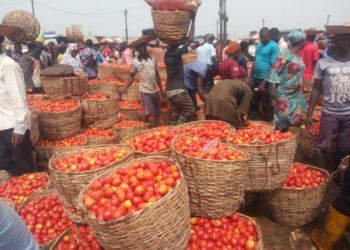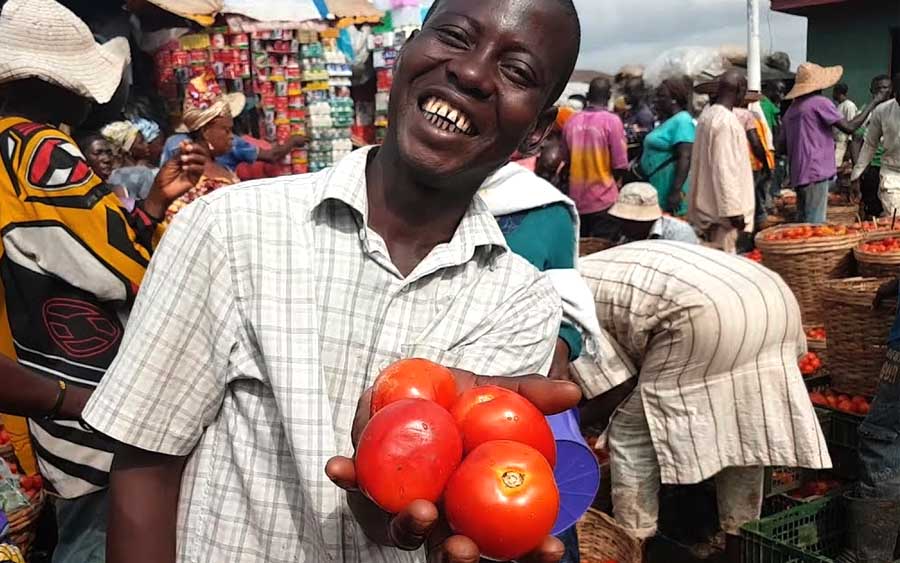Feeding a city of over 17 million people is no small feat, and Lagos does it through a complex web of bustling food markets that keep grains, vegetables, fish, meat, and other staples moving daily.
These markets are not just trading points, they are the heartbeat of the city’s food economy, sustaining households, driving wholesale and retail businesses, and shaping the cost of living across Nigeria’s commercial capital.
Governor Babajide Sanwo-Olu has described Lagos as the country’s largest food market, noting that it consumes more than 50% of food traded across the South-West. He also revealed that the state’s food economy is valued at about N16.14 trillion, making it one of the most significant drivers of local commerce.
According to the Lagos State Commissioner for Agriculture, Abisola Olusanya, disclosed that transactions in the state’s food markets reach an estimated N9 billion daily and over N5 trillion annually.
These figures highlight the scale of activity taking place across the state’s markets, where traders from different parts of Nigeria and neighbouring countries converge daily to meet Lagos’s massive demand for food.
Here is the list of the major food markets in Lagos

Mushin is home to some of Lagos busiest and most dynamic markets, spread across both traditional open-air spaces and modern trading hubs. The area’s markets are divided into Ajino, Ojuwoye and Daleko which are the traditional markets, and the Fresh Food Agro-Hub at Idi-Oro, a state-of-the-art facility designed to modernize food trading.
- Ajino Ajino has earned a reputation as the hub for fresh produce, attracting traders from the North and West who brought in large volumes of vegetables, peppers, onions, and other perishable goods.
- Ojuwoye, in contrast caters to provisions and everyday household shopping. Here, grains, provisions, and general foodstuff move steadily, serving residents who rely on accessible, affordable goods for their daily meals.
- Mushin Fresh Food Agro-Hub at Idi-Oro has quickly emerged as the flagship of Lagos’ effort to modernize food markets. It was launched in 2023, designed to bring structure to trading, with dedicated sections for meat, fish, fruits, and vegetables, as well as improved storage facilities that set it apart from the sprawling open-air markets that dominate the city. In its first year alone, the hub recorded N2.495 billion in transactions, accommodated 348 vendors, and attracted over 75,000 buyers, underscoring its rapid rise as a commercial hotspot.
- Daleko market Daleko market also located in the Mushin area can also be easily accessible from the Oshodi area of Lagos. Rice is the staple that never leaves a Lagosian’s table, and Daleko is its beating heart. It holds the distinction of being the largest rice market in Lagos, where both imported and locally milled varieties move in astonishing volumes. Wholesalers from Ogun, Oyo, Osun, and even more distant states converge on Daleko to buy in bulk, before redistributing to smaller markets, retail outlets, and restaurants across the city. For many households, the price of a 50kg bag of rice at Daleko is the truest indicator of whether they will eat comfortably or struggle through the period.





















